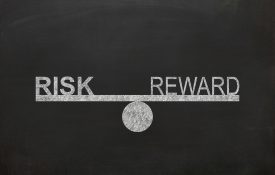-

New Research From Psychological Science
A sample of research exploring the description-experience gap in intertemporal choice and selection of visual objects in perception and working memory.
-

Genetic Variation Contributes to Individual Differences in Pleasure
Differences in how our brains respond when we’re anticipating a financial reward are due, in part, to genetic differences.
-

Debiasing Your Decisions
Game-based debiasing training may help us overcome confirmation bias in our professional lives.
-
You 2.0: The Empathy Gym
What books are on your summer reading list? If you're reading mostly nonfiction, consider the benefits of adding a novel to the mix. "There's a fair amount of evidence now that the more fiction that people read, the more empathetic that they become," says Stanford psychologist Jamil Zaki. "Because fiction is one of the most powerful ways to connect with people who are different from us who we might not have a chance to meet otherwise." Zaki argues that empathy is like a muscle — it can be strengthened with exercise and it can atrophy when idle. On this episode of Hidden Brain, we talk about calibrating our empathy so we can interact with others more mindfully.
-
No, Video Games Are Not a Factor in Mass Shootings
Rather than acknowledge the political motivations of the El Paso shooter or the line of radicalization that led him toward reactionary white supremacy, a number of politicians are returning to a popular scapegoat: video games. Texas Lt. Governor Dan Patrick, House Minority Leader Kevin McCarthy, and President Donald Trump all cited violent video games as a factor in these shootings and other acts of violence in the US. These complaints are a decades-old distraction and continue to be unsubstantiated. There is no significant evidence that video games are a contributing factor to mass shootings. ...
-
New Research: How Much Screen Time Is Bad for Kids?
Sitting in front of a screen is bad for you. Then it's good for you. Then it's bad for you again. But, like, only a bit. Allow me to explain. ... This is exactly the hypothesis that two researchers from the University of Oxford tested in a paper called "A Large-Scale Test of the Goldilocks Hypothesis: Quantifying the Relations Between Digital-Screen Use and the Mental Well Being of Adolescents." (Przybylski and Weinstein, 2017). The authors collected information from a frankly ridiculous number of adolescents in the UK, resulting in screen time and mental well being data on over 120,000 young people.

